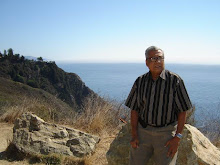Some queries regarding Tarabi prayers
A study of the life of our Holy Prophet demonstrates that he offered the Tarabi prayers in a very relaxed manner. At times he offered the prayers all by himself at his residence with comfortable breaks; taking rest in between two or four rakats and at other times in a congregation in the mosque. This was done by the prophet to give two clear messages to his followers. First, he wanted to convey that Tarabi prayers, though important and can be said in jamaat, are like any other Sunnat prayers and do not have the compulsion of Farz prayers. Secondly, to allow the fasting people, who are naturally very tired after a full day of fasting, to say this prayers in a relaxed manner.
However, in Bangladesh we find that almost in all mosques where Tarabi prayers are offered in the month of Ramadan a system is being practiced which is against the principles propagated by the prophet. Some people claiming religious authority have introduced a system which is popularly known as “Khatam Tarabi”. In that the Imam who normally leads the other Farz prayers does not lead the Tarabi prayers. The services of two or more Qur’an-e-Hafiz are hired to lead the Tarabi prayers every evening through a sharing of the rakats. These Hafizs take about 27 evenings to complete the recitation of the whole of the Qur’an. On the last day, when the recitation is completed a ceremonial long munajat is held. The Hafiz recites the verses from the Qur’an at a very fast pace. It is done so fast that no one can follow it. At the end of Ramadan the Hafiz is paid remuneration out of donations collected from those who attend the prayers. Every evening it takes about two and a half hours to complete the Esha and the “Khatam Tarabi” prayers, whereas a session of “Sura Tarabi” usually takes about 45 to 60 minutes.
I would like to put the following questions to the learned Islamic scholars regarding Tarabi prayers:
Is it mandatory for a Muslim to say “Khatam Tarabi”? Can s/he not fulfill the religious obligation by saying “Sura Tarabi”? If it is not mandatory, then why do the mosque committees take it as a prestige issue to hold “Khatam Tarabi” in their respective mosques? Why should the mosques in question impose the decision of holding long sessions of “Khatam Tarabi” when it is not required by either the Qur’an or by the Sunnah?
Is it correct for the concerned Hafiz to take remuneration for leading the Tarabi prayers? For that matter, can anybody be paid for only leading prayers, or calling Azan?
Is it proper for the concerned Hafiz to recite from the holy Qur’an as fast as is usually done?
Syed Ashrafuzzaman
However, in Bangladesh we find that almost in all mosques where Tarabi prayers are offered in the month of Ramadan a system is being practiced which is against the principles propagated by the prophet. Some people claiming religious authority have introduced a system which is popularly known as “Khatam Tarabi”. In that the Imam who normally leads the other Farz prayers does not lead the Tarabi prayers. The services of two or more Qur’an-e-Hafiz are hired to lead the Tarabi prayers every evening through a sharing of the rakats. These Hafizs take about 27 evenings to complete the recitation of the whole of the Qur’an. On the last day, when the recitation is completed a ceremonial long munajat is held. The Hafiz recites the verses from the Qur’an at a very fast pace. It is done so fast that no one can follow it. At the end of Ramadan the Hafiz is paid remuneration out of donations collected from those who attend the prayers. Every evening it takes about two and a half hours to complete the Esha and the “Khatam Tarabi” prayers, whereas a session of “Sura Tarabi” usually takes about 45 to 60 minutes.
I would like to put the following questions to the learned Islamic scholars regarding Tarabi prayers:
Is it mandatory for a Muslim to say “Khatam Tarabi”? Can s/he not fulfill the religious obligation by saying “Sura Tarabi”? If it is not mandatory, then why do the mosque committees take it as a prestige issue to hold “Khatam Tarabi” in their respective mosques? Why should the mosques in question impose the decision of holding long sessions of “Khatam Tarabi” when it is not required by either the Qur’an or by the Sunnah?
Is it correct for the concerned Hafiz to take remuneration for leading the Tarabi prayers? For that matter, can anybody be paid for only leading prayers, or calling Azan?
Is it proper for the concerned Hafiz to recite from the holy Qur’an as fast as is usually done?
Syed Ashrafuzzaman


0 Comments:
Post a Comment
Subscribe to Post Comments [Atom]
<< Home